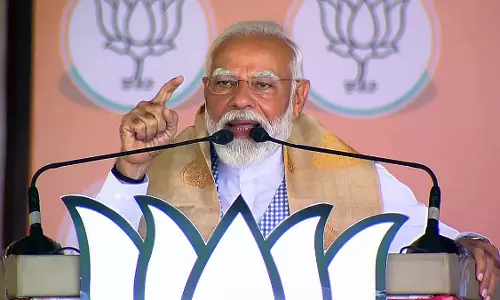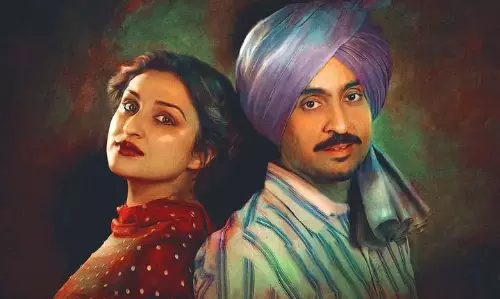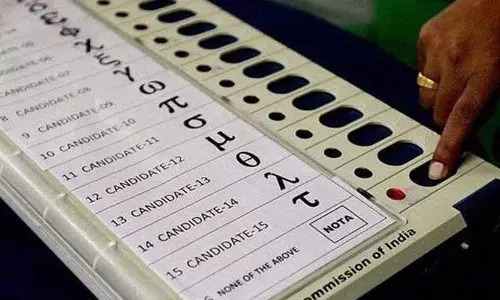
The Babri verdict
text_fieldsThe legal battle over Babri Masjid that started in 1949 has now come to an end after 69 years with the verdict about the title dispute from the highest court of the country on Saturday. Babari Masjid was built by Mir Baqi, the mlitary governor of Mughal emperor Babar in 1528 in Faisabad, renamed Ayodhya. On the night of 22 December 1949, a group of people broke into it and installed an idol there following which collector KK Nair sealed it.
Earlier, the Allahabad High court, which put together all the petitions in this regard, issued its judgment on 30 September 2010 awarding the title of the three parts of the comound to three parties to the case, i.e. Nirmohi Akhara, Ram Lalla Virajman and Sunni Waqf Board. But none of the three parties was satisfied with the verdict and filed appeals with the Supreme court. Now the apex court bench comprising chief justice Ranjan Gogoi, Justices SA Bobde, DY Chandrachud, Ashok Bhushan and SA Naseer, through its unanimous verdict has ruled on those petitions after nine years.
For the people of India who wanted to see a resolution in some manner of the Babri-Ram Janmabhoomi conundrum that had caused a change of government more than once and trigerred riots, this may come as a consolation. But if one asks if the verdict in the case - with Hindus as one party and Muslims as the other - is satisfactory and acceptable to both equally, the answer would be in the negative, as reflected in responses emerge from quarters concerned. While RSS chief Mohan Bhagwat welcomed it wholeheartedly, the reponse of All India Muslim Personal Law Board is that it is not satisfactory, and will consider filing a review petition. However, the consoling part is that both Muslim and Hindu leaders alike having asserted that they will and should honour the court verdict in any case and called on all parties to exercise restraint. True, secular democratic India is no longer capable of bearing the burden of another riot in the name of Babri Masjid.
That said, there is of course room for analysis on to what extent the well-thought out verdict of the five-judge bench and the findings that led to it, are objective and fair. The court which points out that Ram Janmabhumi is a matter of faith, and not a disputed matter that can be decided legally, is seen to have also conceded the demand of Ram Lalla Virajman who impleaded on behalf of Ram Janmasthaan - which cannot be proved historically or factually. And it is building on this premise that the court has ordered passing the entire disputed land to them for building a temple – a contradiction that has been highlighted by many. It may also be remembered that this was done entirely dismissing Nirmohi Akhara who have been in the legal battle ever since 1959 with the petition to grand title to the land for the temple. In a similar vein, the court observes that the fact that until 1949 Muslims had prayed inside Babri masjid and that they later gave up praying there does not establish that they relinquished the very land. At the same time, the court does not grant to the Sunni Waqf Board even a square inch of land out of the 67 acres including the plot where the Babri masjid stood.
Instead the court decreed allottine a five-acre land in Ayodhya to be identified by the government. While the judgment points out that the demolition of the mosque on 6 December 1992 was unlawful, that raises another relevant question whether the court verdict wouldn’t tantamount to allowing the attackers to reap the fruit of their unlawful act, by paving the way for construction of a temple at the same spot. It is not to be forgotten that the case against those who were found guilty in the CBI probe and in the report of Liberhan Commission, is still pending with the court. The apex court highlights that Indian constitution upholds equality of all religions and that religious tolerance and mutual co-existence will strengthen our secular commitment of the country and its people. It can be presumed therefore that the court issued its final order on Babri dispute in the same spirit. But there is a legitimate query whether the sangh parivar, which came to power through the communal polarisation achieved by capitalising on the dispute to the utmost, adheres to the same spirit when it welcomed the verdict.

















